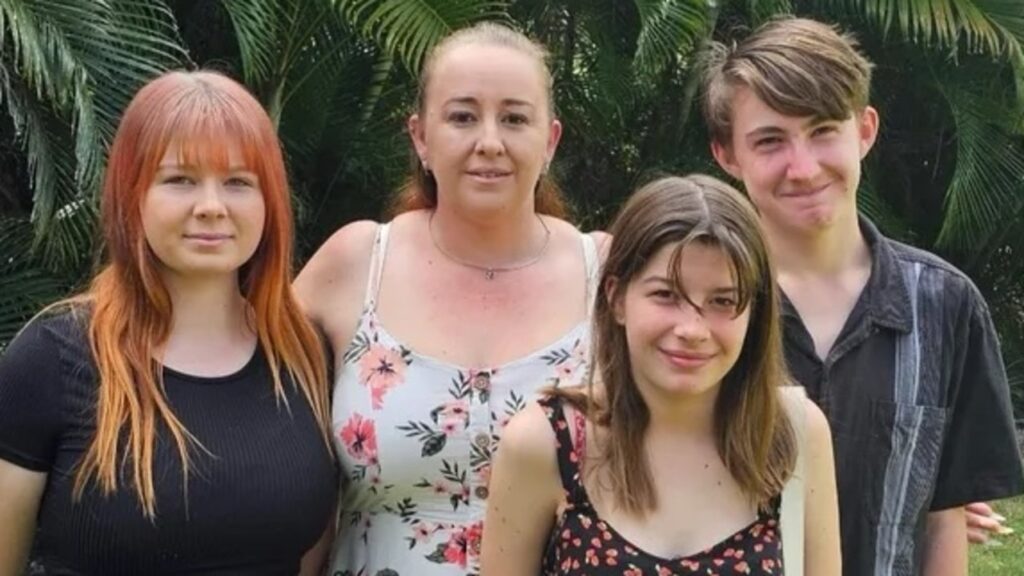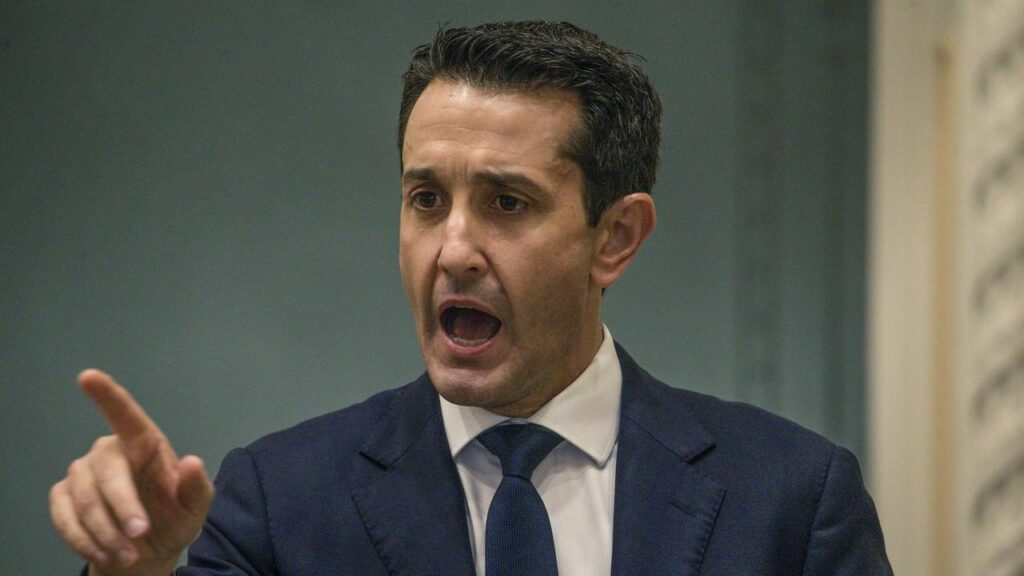SA Premier Peter Malinauskas says wife Annabel pushed him to ban social media
Written by admin on October 11, 2024
South Australian Premier Peter Malinauskas has revealed his wife pushed him to consider a ban on social media for kids, telling him one night that “you better effing do something about this”.
Mr Malinauskas helped trigger a national conversation on social media’s dire effects on children after launching a state-based proposal to implement age verification for digital platforms.
Speaking at the Adelaide Convention Centre on Friday, Mr Malinauskas said his wife Annabel had grown alarmed about children locked in to social media after reading The Anxious Generation, which charts the destructive effects of tech on childhood development, by leading US social psychologist Jonathan Haidt.
“Bell read the book The Anxious Generation … she read the book and turned to me one night and said, ‘you better effing do something about this’.”
“That sincerely was the genesis of actually putting our minds to what can we do as a state government in conjunction with the state parliament to make a difference.”
Australia is moving towards legislation that will compel tech giants like Snapchat, Meta and TikTok to implement age verification, with South Australia first proposing the idea of an age ban that was then picked up by the federal government.
Mr Malinauskas is holding a two-day Social Media Summit alongside NSW Premier Chris Minns, with day 1 in Sydney and day 2 in Adelaide.
“Let’s not minimise the stakes here … the eyes of the world are actually on us in regards to this reform,” Mr Malinauskas said.
“We will embolden other governments around the world to follow our example.”
Mr Malinauskas said from next year, South Australian public and private schools would roll out special social media training courses to help students deal with potential harms, including sextortion and image-based abuse.
A panel of teens drawn from The Adelaide Advertiser’s annual Teen Parliament exposed the stark abuse Australian children are subjected to on social media.
One speaker said she started using social media at the age of 11 and had been sexually harassed online at the age of 12.
“We don’t know what to do when those things happen,” she said.
Another told attendees social media could deliver some positive benefits to teens, particularly around social connection.
“That can be a real positive…but it means you’re never switched off,” she said.
But she warned smartphones and social media had become “habits” rather than choices for many children and teens.
“It’s just every day you wake up and the first thing is you reach for the phone,” she said.
ASIO chief Mike Burgess and Communications Minister Michelle Rowland are booked to speak at the summit on Friday afternoon.
On Friday, Ms Rowland will outline how the government’s social media legislation might look.
“The key principle of the Commonwealth’s legislative approach is to place the onus on platforms, not parents or young people,” Ms Rowland will tell the summit.
“Penalties for users will not feature in our legislative design.
“Instead, it will be incumbent on the platforms to demonstrate they are taking reasonable steps to ensure fundamental protections are in place at the source.”
While the government has yet to confirm the age limit, which will likely be between 14 to 16, Ms Rowland will say the aim of the legislation is for social media companies to develop “ age-appropriate versions of their apps”.
Apps deemed to be “low risk of harm to children” could also be exempt from the sweeping age limit; however, the government is still considering that provision.
Companies will also be given a 12-month implementation timeframe to adapt and implement the necessary new rules.
Mr Haidt, dialling into the summit, called on Australian legislators to “clean up” the mess America had made for the world.
He said social media had helped contribute to “the greatest destruction of human capital and capacity in human history” outside of World War II, citing global declines in educational outcomes and the ability of children to focus and concentrate since the ascension of smartphones and social media.
Mr Haidt proposed the reinstitution of four key “norms” to save childhood development: no smartphones before 14, no social media before 16, phone-free schools and more independence and free play for children.






